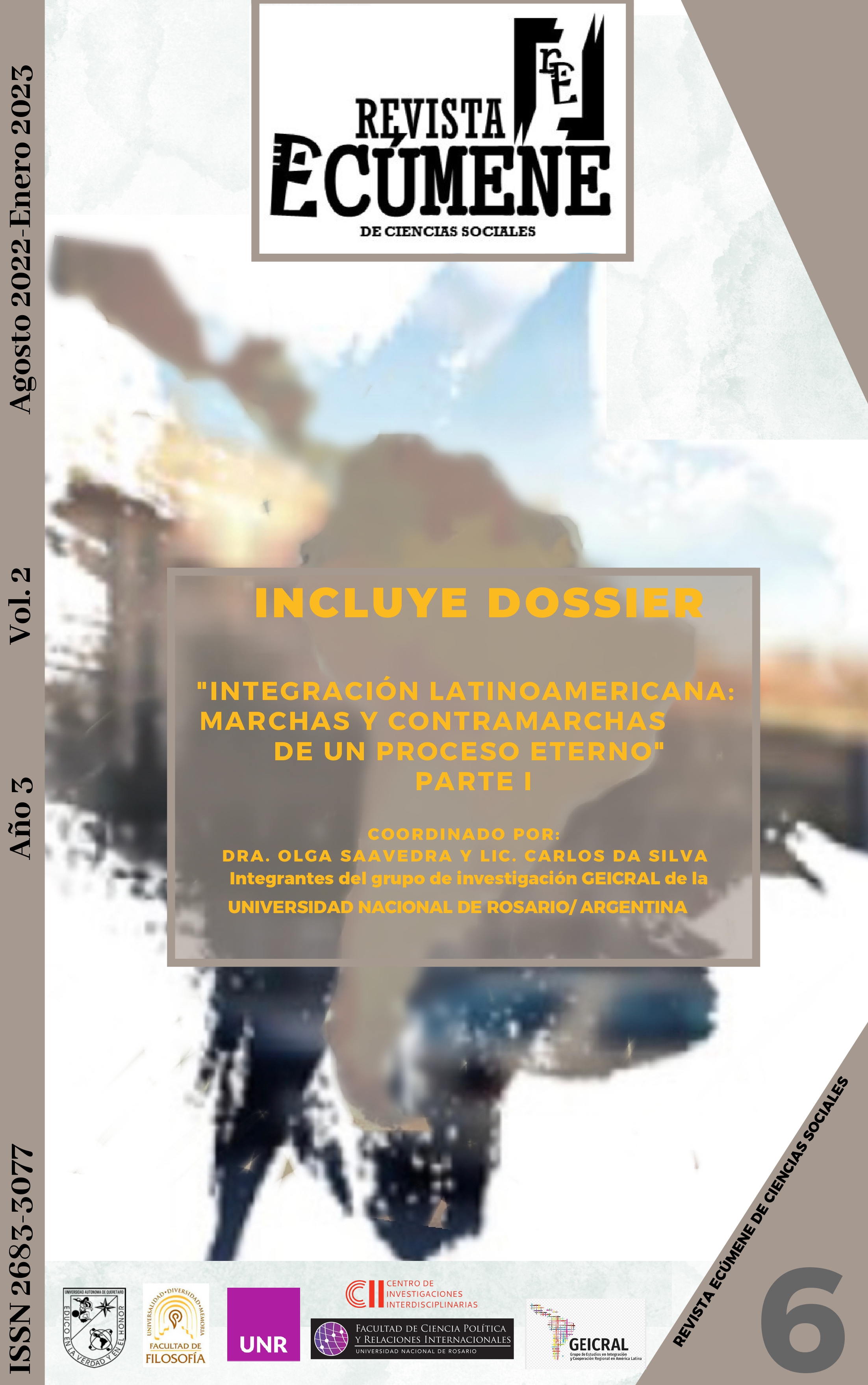Abstract
In the 2000s, the integration process took on great dynamism and generated new regional and subregional instances as well as new instruments for linking countries. Thus, the Bolivarian Alliance for the Peoples of Our America (ALBA), the Union of South American Nations (UNASUR) and later, the Community of Latin American and Caribbean States (CELAC) emerged. Even MERCOSUR went through a reconfiguration of its agendas from the new bilateral rapprochement between Argentina and Brazil, although without structural changes. The ALBA project was born from Venezuelan foreign policy and was, without a doubt, one of the novelties in terms of regional ties. In the first place, ALBA designed integration agendas that were not explicitly related to the economic-commercial sphere, and even presented them as opposition to those of the FTAA project and free trade. Secondly, it introduced the notions of "cooperative advantages" over competitive advantages and developed a system of "solidarity" exchanges, firstly with Cuba, and later with the other members that joined the initiative. Venezuelan oil played a key role as a necessary resource for other countries in the region, but it was not the only thing that brought together the new members of ALBA. The objective of this paper is to reflect the emergence of the ALBA initiative, not always addressed in depth by integration analysts, in the context of the regional reconfiguration of the 2000s, observing its main contributions, as well as some of its limitations

This work is licensed under a Creative Commons Attribution 4.0 International License.
Copyright (c) 2023 Autor

